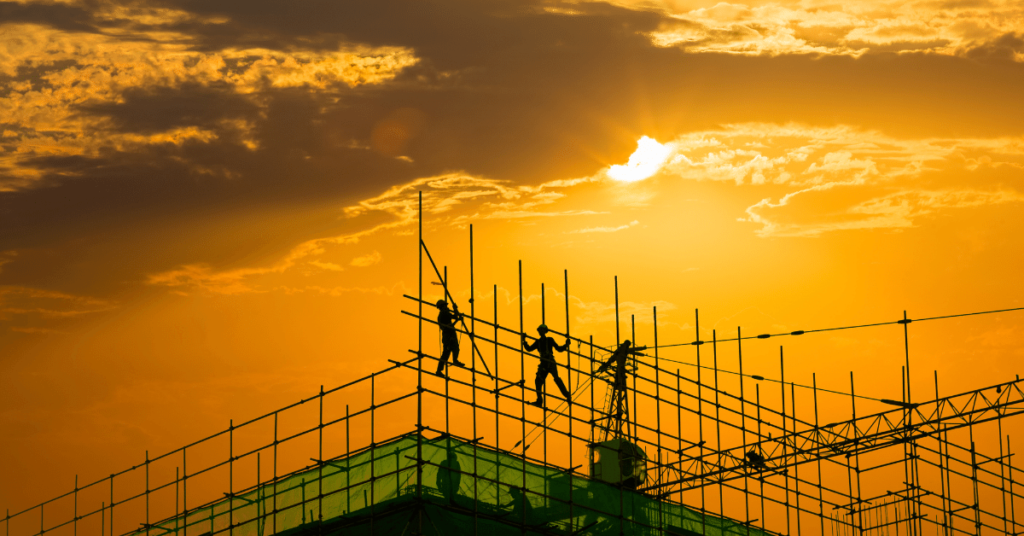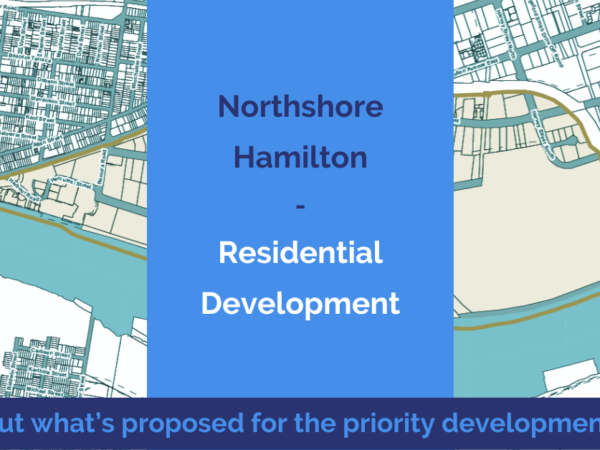It’s 2022, and construction is busier than ever, but the flip side is that not only are construction companies experiencing a shortage of staff due to the pandemic but there is also an acute shortage of skilled labour.

Many companies are coping by turning down work or delaying projects, or even worse, overworking the already tired staff that they have. As a result, time and costs are being blown out and workplace safety.
This is where industrialised construction has entered the scene and will continue to gain momentum. Some may ask, ‘well, what is industrialised construction anyway’? And for those in the know, and those not yet in the know, the bottom line is the same question – whether industrialised construction is good news or bad news? We provide a brief, unbiased snapshot below.
What is industrialised construction?
Industrialised construction involves using more innovative techniques and processes compared to traditional construction methods. Operations are more automated, and much of the manufacturing occurs off-site before being transported to the site location and assembled there. It’s not necessarily a new concept; rather, it’s gaining traction due to the increasing demands on efficiency, project margins, and dire skilled labour shortages.
What are some of the benefits?
There are time-saving benefits because the assembly is easier and faster once on-site, the weather has less impact as many of the processes occur undercover off-site, there’s less waste due to reuse of scrap materials off-site, and generally, it provides for fewer occupational hazards on-site.
There is no limit as to where the methods can be applied. Any structure, for example, even hospitals, has structural and foundational components that can be replicated and standardised. As a result, workflows improve, cost savings are achieved, design time is saved, and many building inspections can occur off-site, meaning fewer scheduled on-site visits that would normally cause delays. In addition, from the worker’s perspective, there’s more predictability surrounding their day, and specified skill sets can be developed, which enhances productivity.
According to Pinsent Masons, “industrialised construction also provides an opportunity to deal with some of the construction industry’s long-standing challenges by increasing the diversity of people working in the sector. Industrialised construction can help attract a new generation of talent, increasing diversity across the industry”.
What are some of the cons?
There are challenges. For example, industrialised methods can be challenging if specific customisation is desired. In addition, transporting prefabricated work can also prove problematic, as can supply chain issues causing a domino effect.
On another front, according to Pinsent Masons, there could also be an increased risk of ‘ownership’ disputes as “the traditional allocation of risk down the supply chain and tight profit margins combine to breed a culture where employers and contractors are more likely to seek to position themselves for winning disputes over delays or defects than to work together to resolve issues and deliver projects on time and on budget”.
So what’s the verdict?
Undoubtedly, the industrialisation of construction will continue to play a crucial role in the industry, especially when we have a skilled labour crisis and a pandemic affecting projects.
So yes, something must give, and the industrialisation of construction will gain momentum. Yes, there will be certain inherent risks to work through, however, there will also be many opportunities.
What is for certain, is that change in the construction industry is constant, and construction firms are finding it increasingly difficult to hire people with the right skills. So, it’s important to keep abreast of developments and place yourself ahead of the curve, presenting as the talent needed to lead, innovate and achieve the best outcomes during the already inevitable transformation towards a different ‘next normal’ that’s facing the construction industry.
(Sources: Pinsent Masons 2021; Construction Business Owner 2020; Construction Dive 2021)
Looking for your next construction job? Search our current construction roles here, or to chat to our team about securing your next opportunity, get in contact with us through our Contact Us page.
Receive our updates straight to your inbox



